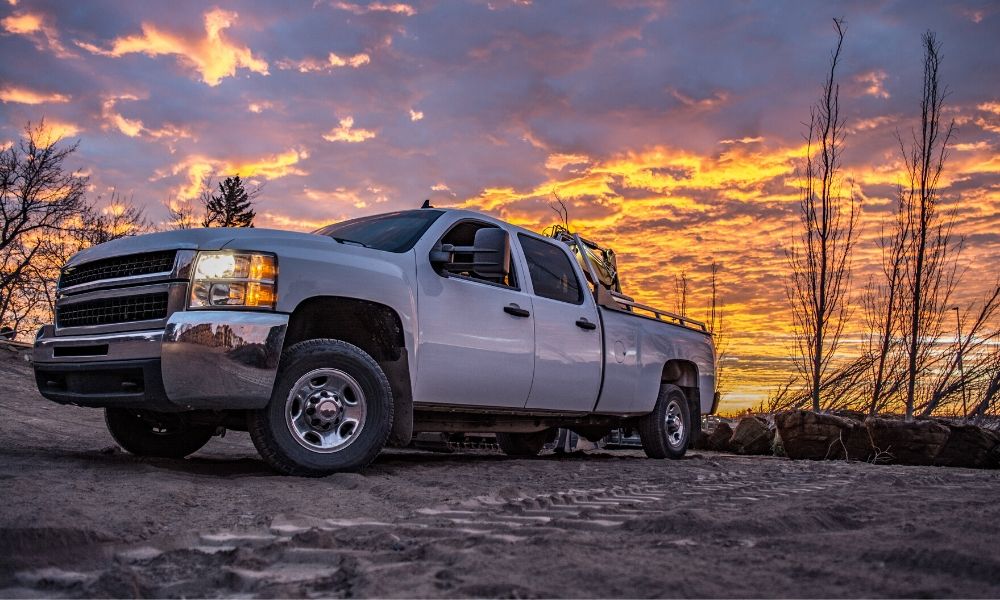Truck beds have come a long way since their inception, evolving from basic cargo-carrying spaces into highly functional and tech-savvy storage solutions. What was once a simple, flat area designed to carry tools and goods has now become a smart, multi-functional space that integrates advanced materials, storage innovations, and cutting-edge technology. In this article, we explore the evolution of truck bed technology and how it has transformed from a utilitarian feature into a sophisticated asset for truck owners.
Early Truck Beds: Simplicity and Functionality
1. Basic Design for Utility
In the early days of trucks, the bed was nothing more than a flat, open cargo area made from wood or steel. The primary purpose was straightforward—haul goods, tools, and materials from one location to another. Truck beds were designed with simplicity and durability in mind, making them workhorses for farmers, construction workers, and tradespeople.
Key Features of Early Truck Beds:
- Made from wood or steel for durability.
- Open design with little to no customization.
- Primarily used for cargo transport.
2. Introduction of Tailgates and Bed Liners
As trucks gained popularity in the mid-20th century, manufacturers began to introduce basic innovations to improve functionality. Tailgates were added to make loading and unloading easier, and bed liners—typically made from rubber or plastic—were developed to protect the truck bed from damage caused by heavy cargo.
Improvements:
- Tailgates for easier access.
- Bed liners for protection against wear and tear.
The Rise of Customization: Modular Truck Beds
1. Toolboxes and Storage Solutions
As truck owners started to use their vehicles for a wider range of activities, manufacturers responded by offering customizable options for truck beds. Toolboxes became a popular addition, providing secure storage for tools and equipment. Bed dividers and storage bins allowed truck owners to organize their cargo more efficiently, making the truck bed more versatile.
Advantages of Modular Truck Beds:
- Increased functionality with storage solutions.
- Better cargo organization for specific needs.
- Customization options for different industries and hobbies.
2. Tonneau Covers
The introduction of tonneau covers was a major step forward in truck bed technology. These covers, available in soft or hard materials, allowed truck owners to protect their cargo from the elements. Tonneau covers also improved aerodynamics, resulting in better fuel efficiency, and provided security by concealing valuable items.
Benefits of Tonneau Covers:
- Weather protection for cargo.
- Improved security.
- Enhanced fuel efficiency through better aerodynamics.
Modern Truck Bed Technology: Smarter and More Versatile
1. Advanced Materials
One of the biggest advancements in truck bed technology is the use of modern materials that are both lightweight and durable. Aluminum and high-strength steel have replaced traditional materials, reducing the overall weight of the vehicle without compromising strength. These materials are resistant to rust, corrosion, and dents, making them ideal for heavy-duty use.
Advantages of Modern Materials:
- Lightweight yet durable.
- Resistant to rust and corrosion.
- Enhanced strength for heavy-duty applications.
2. Smart Tailgates
The latest trucks come equipped with smart tailgates, which are designed to offer multiple functions beyond simple opening and closing. Some models feature split tailgates that allow for easier loading and unloading, while others have built-in step ladders or cargo stops. These innovations make the truck bed more user-friendly and versatile.
Key Features of Smart Tailgates:
- Multi-functionality for different types of cargo.
- Built-in steps for easier access.
- Tailgate assist for smooth operation.
3. Integrated Power Systems
Many modern trucks are equipped with integrated power outlets, making it easy to use power tools, charge devices, or even run appliances directly from the truck bed. This feature is especially valuable for contractors, campers, and outdoor enthusiasts who need access to electricity on the go.
Benefits of Integrated Power Systems:
- Convenient power source for tools and electronics.
- Ideal for work sites and outdoor activities.
- Eliminates the need for external generators.
4. Smart Cargo Management Systems
In recent years, manufacturers have introduced smart cargo management systems that use sensors and technology to help truck owners keep track of their cargo. Some systems feature adjustable tie-downs and sliding bed extenders, while others use sensors to monitor weight distribution or alert the driver if the cargo is improperly secured.
Advantages of Smart Cargo Management:
- Real-time cargo monitoring.
- Improved safety with load sensors.
- Versatile cargo organization and tie-down solutions.
The Future of Truck Beds: Connectivity and Automation
1. Connected Truck Beds
As vehicles become increasingly connected, truck beds are no exception. Future models are expected to integrate even more advanced technologies, such as wireless charging stations for tools and devices, remote monitoring of cargo conditions, and app-controlled features that allow owners to lock, unlock, or adjust the truck bed’s configuration from their smartphones.
Upcoming Features:
- Wireless charging and connectivity.
- Remote control via smartphone apps.
- Integration with smart home systems.
2. Autonomous Cargo Loading
The future of truck bed technology may also see the development of autonomous cargo loading systems. Using robotics and sensors, these systems could automatically load and secure cargo, reducing the physical effort required by the owner and ensuring that loads are always properly balanced and secured.
Potential Innovations:
- Robotic loading and securing of cargo.
- Enhanced safety with automated systems.
- Reduced physical strain for users.
Conclusion
The evolution of truck bed technology has transformed this once-simple feature into a smart, multifunctional asset. From early, utilitarian designs to the modern, tech-savvy systems of today, truck beds now offer enhanced durability, customization, and connectivity. As technology continues to advance, we can expect even more innovations in the way truck beds are used, making them smarter, safer, and more efficient for a wide range of applications.


